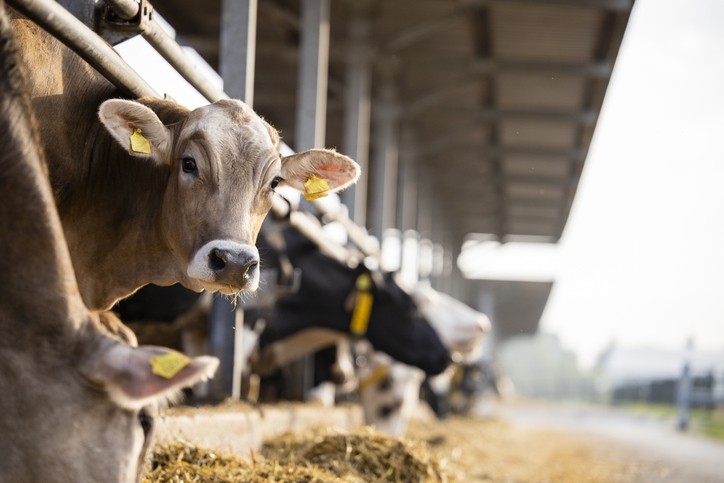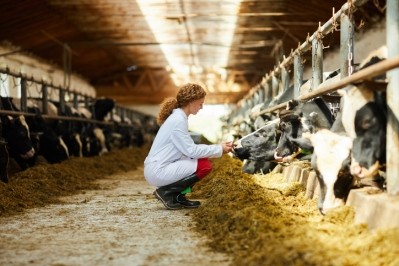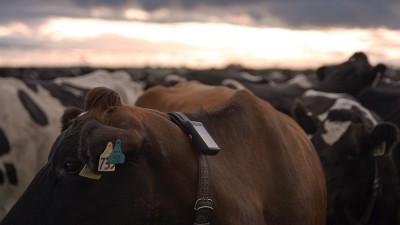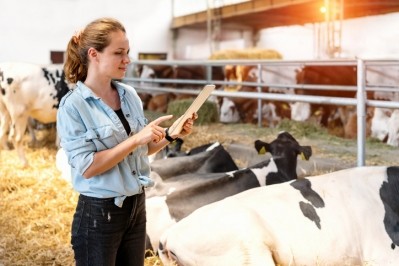Bluetongue: Efforts intensify to tackle virus as it hits Europe ‘with a vengeance’

Bluetongue is an infectious, non-contagious viral disease that affects cattle and sheep. Spread by the bites of midges, symptoms can include fever, swollen tongue, lesions, reduced milk production, and in severe cases, death in sheep.
Bluetongue cannot be transmitted to humans through contact with animals or consumption of animal products, so does not pose a risk to human health or food safety.
But the disease poses economic risks for farmers. Bluetongue can result in the loss of around 30% of a sheep herd, with lower mortality rates in cattle.An outbreak in the Netherlands in 2008 cost about €200 million in the Netherlands alone.
A new strain (BTV-3) has emerged at the end of 2023 and is spreading quickly, especially in the Netherlands, Germany, and Belgium.
The Netherlands has been hit particularly hard, with over 5,600 outbreaks reported.
In response, several European countries have approved bluetongue vaccines, particularly for the BTV-3 strain.
The UK government is the latest to give emergency approval of three BTV-3 vaccines: Bulvato 3 (made by Boehringer Ingelheim), BLUEVAC 3 (Ceva) and Syvazul BTV3 (Syva).
The approval comes in response to the ongoing bluetongue outbreak in the UK, with cases confirmed in Norfolk, Suffolk, and Essex. As of September 2024, there were 13 infected premises with 41 confirmed cases of BTV-3 in animals.
Will the vaccines work?
A new paper warns that the Bluetongue has spread rapidly in sheep and cattle in six countries in Europe despite the use of three new vaccines.
The vaccines have shown vaccinated animals gain good or complete protection from mortality compared to non-vaccinated animals, but not full prevention of infection.
The UK government stressed that the three available vaccines are suppressive, not preventative.
This means they will not prevent animals from being infected or being infectious, although they may reduce the clinical signs experienced.
Therefore all movement controls and trade restrictions in place will still apply to vaccinated animals, Defra confirmed.
NFU President Tom Bradshaw said: "The BTV3 vaccines make no claim to reduce infectivity, but they do appear to reduce mortality and the severity of clinical signs.
"So, while they won't stop animals from becoming infected, they could reduce the impact of the disease on individual animals and therefore provide an animal welfare benefit.
"We must now ensure that there is enough availability for livestock farmers in the high-risk area to use if they wish."
The NFU said a vaccine to prevent infection was the "ideal scenario" but warned the time to develop such a vaccine would be the "big challenge".
Can animals get vaccinated in time?
Boehringer Ingelheim said BULTAVO 3 is the first vaccine that prevents mortality and clinical signs of BTV-3. It ‘significantly’ reduces virus circulation in the animal's blood, lowering disease transmission risk. Sheep require one shot for initial protection. Cattle need two shots but spaced three weeks apart.
“BULTAVO 3 delivers what was expected: it does prevent clinical signs and mortality,” a spokesperson said.
Animals, however, must be healthy when vaccinated and allowed three weeks to build their immunity prior to exposure. How difficult could this prove given the rapid spread of the disease?
This point is crucial, the spokesperson said.
“Considering BTV-3 spreads up to 25km per week and needs a seven- to 10-day incubation period, it is advisable to vaccinate animals located between 100km to 150km from the most recent observed outbreak to ensure their optimal protection. Those vaccinated when located closer to the outbreak could be hit by virulent BTV-3 before they get their full vaccinal immunity.”
Boehringer Ingelheim said it has been closely monitoring BTV outbreaks circulating across the globe for a number of years. “But there was no substantial need for a BTV-3 vaccine at that time. However, last autumn a fast-spreading and severe BTV-3 outbreak emerged in the Netherlands. The key challenge was to quickly react to the market need and develop a safe and efficacious vaccine.”
Boehringer Ingelheim also claimed BULTAVO 3 can prevent future BTV-3 outbreaks. “We are monitoring closely what it delivers on the field. With two months’ observation, its efficacy on a large-scale use reflects the very good outcomes we observed in the development phase of the vaccine. At present, we have not received any confirmed cases of lack of efficacy related to it.”
Ceva’s Corporate Ruminants Marketing Director Juan Munoz Bielsa said the BLUEVAC-3 vaccine is the first to reduce viremia (the initial spread of the virus from the first site of infection into the bloodstream) in both cattle and sheep which is essential to control the disease.
“In cooperation with our partner CZV Vaccines, we are happy to support veterinarians and farmers, by making available on the market a very effective vaccine against bluetongue serotype3, within a very short period of time.
"This vaccine is an essential tool to protect cattle and sheep under our care.”


















